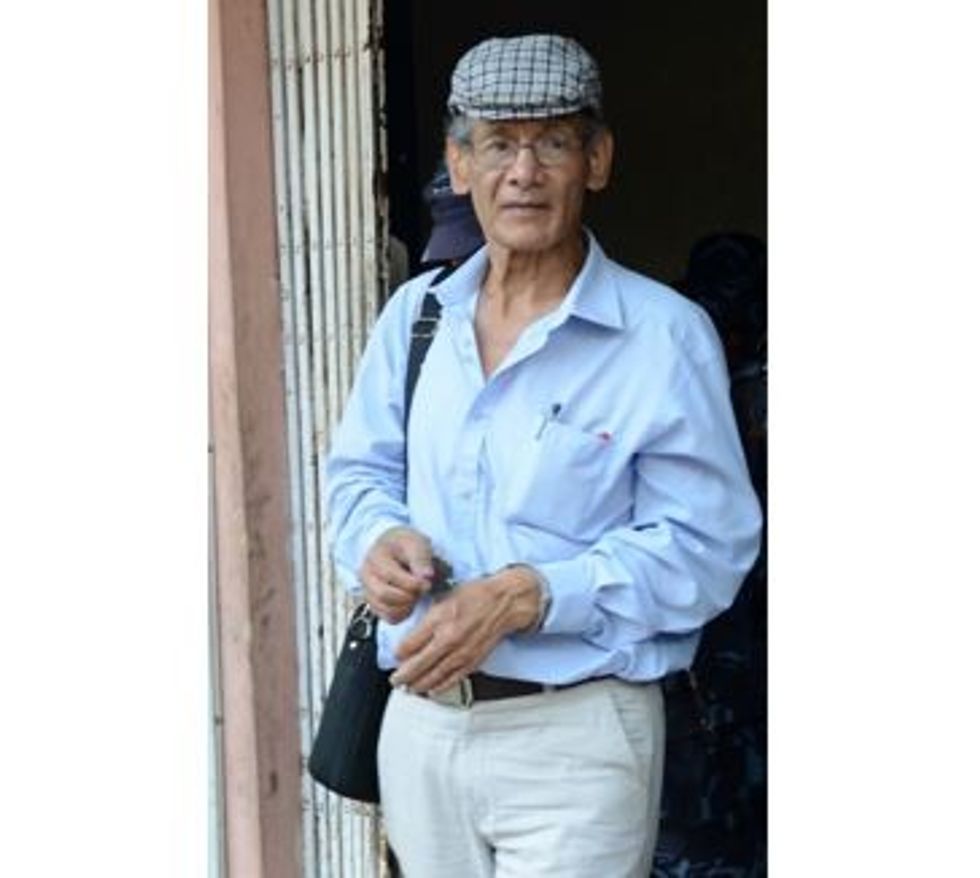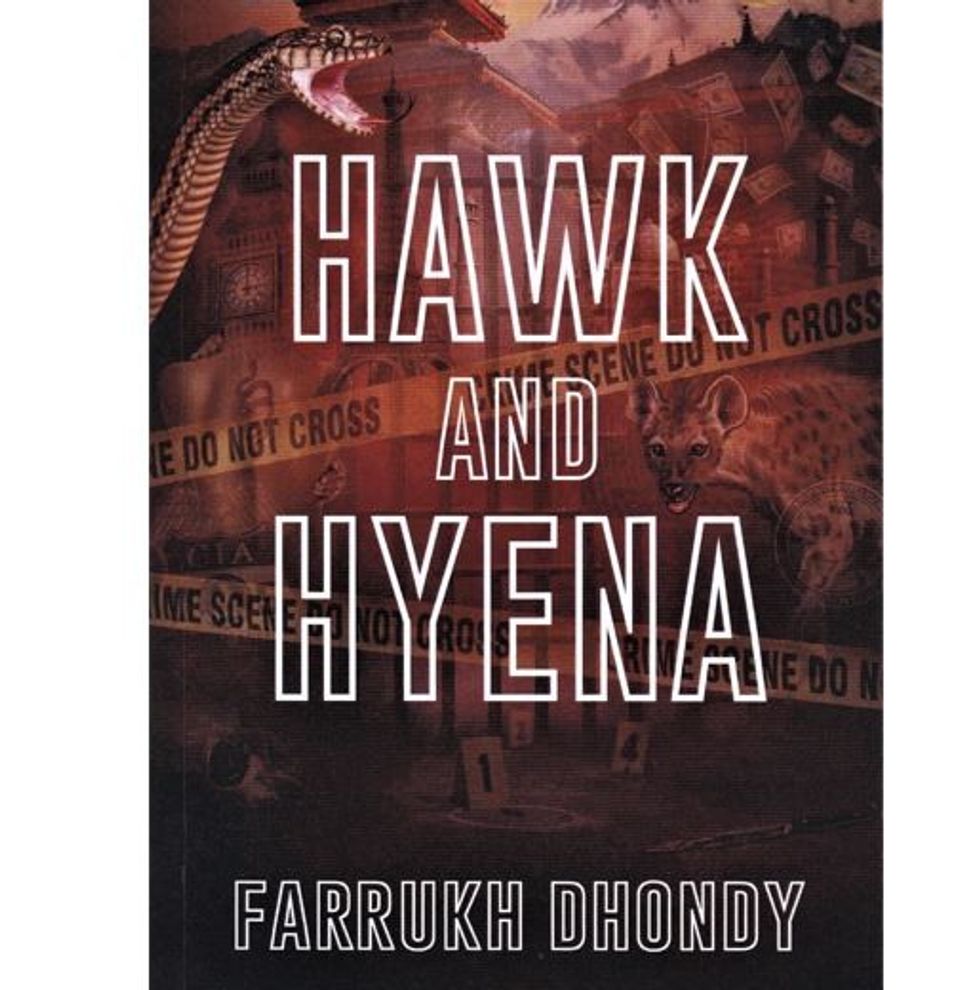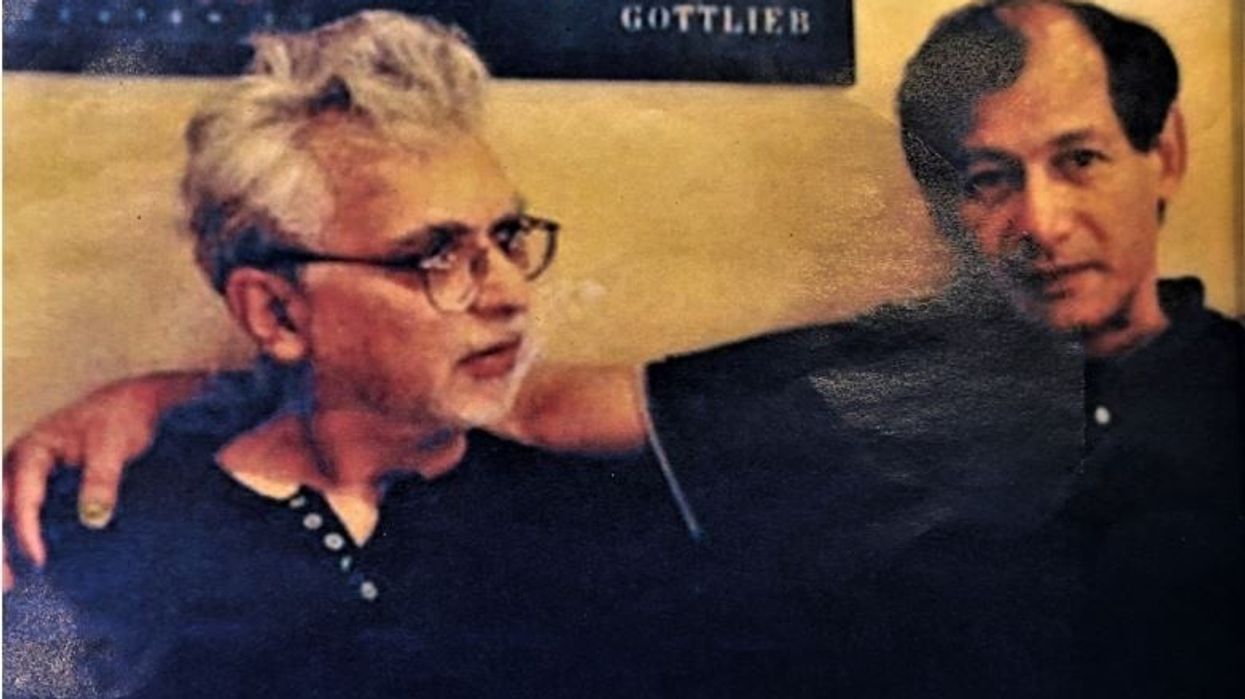WRITER and filmmaker Farrukh Dhondy has written a plausible and entertaining new book on the serial killer Charles Sobhraj, who was the subject of an eight-part BBC-Netflix drama, The Serpent, earlier this year, with French actor Tahar Rahim in the lead role.
Dhondy’s book is called Hawk and Hyena because Sobhraj “was exactly that”.
“He murdered people very boldly – like a hawk,” Dhondy explained to Eastern Eye in an exclusive interview. “He swooped down on them when he wanted to. But sometimes he killed pathetic people and just preyed on their dead bodies – just like a hyena. That was his career.”
Sobhraj is now 77, in poor health and serving life sentences in a Kathmandu jail for two murders he is said to have committed in Nepal. He was convicted of 11 murders in Thailand, but fled the country in 1975 before he could be executed.
In India, he was held in Tihar jail in Delhi from 1976 to 1997. After his release, Sobhraj ended up in Paris, from where he got in touch with Dhondy, then the influential commissioning editor for multicultural programmes at Channel 4.

Dhondy got to know Sobhraj extremely well between 1997 and 2003, when the latter went to Kathmandu to finalise a drugs and arms deal, involving the Taliban and the Triads, but was betrayed, arrested and sent to prison for life.
It is Dhondy’s second book on Sobhraj, after he previously wrote a novel, The Bikini Murders, in 2013, based on what Sobhraj had told him about his life of crime; Hawk and Hyena is a factual account of the man Dhondy got to know.
The book reveals how Boris Johnson, as editor of The Spectator, had a meeting with Sobhraj.
On another occasion, Sobhraj claimed he helped with the release of passengers taken hostage when an Indian Airlines flight IC 814 was hijacked after it took off from Kathmandu on December 24, 1999.
Sobhraj said he had spoken to the Pakistani terrorist, Masood Azhar, who was released from Tihar in exchange for the passengers, with the swap taking place in Taliban-controlled Kandahar airport in Afghanistan.
Sobhraj claimed he had looked after Azhar when they were fellow prisoners in Tihar (in adjoining cells) and revealed he had become practically best friends with him.
On one occasion he had given a phone to Azhar, but then tried to bargain with RAW, India’s intelligence agency, by offering the numbers the Pakistani terrorist had used.
According to Dhondy, Sobhraj’s real name is Gurumukh Bhavnani. He was born in Vietnam, the son of an Indian Sindhi father, Sobhraj Bhavnani, and a local woman, Tran Loang Phun. After he was abandoned by his father, his mother married a French army lieutenant.
The boy, renamed Charles Sobhraj, grew up in Paris where he kept getting into trouble. He began his career as a serial killer, preying on hippies and vulnerable women, in Thailand.
Dhondy takes up the story in 1997 when Sobhraj contacted him at Channel 4 and told him, “My cousin, Raj Advani, was in college with you in Pune.”
This was true. Dhondy had come to England from Pune to study at Cambridge. Dhondy was intrigued when Sobhraj said he wanted help with the publication of his memoirs.
Sobhraj came over from Paris for the meeting with Dhondy and the distinguished literary agent, Giles Gordon, who declared the manuscript was “rubbish”. There were no admissions of serial killings, but just boasts about how he had got out of Tihar.
Undeterred, Sobhraj suggested that “Fa’ook” – he could never pronounce “Farrukh” – could do a movie on him. That was really why Dhondy kept up his interactions with Sobhraj in the hope that a “spicy” film could be made one day.
Sobhraj gave him “carte blanche” to write a treatment which he discussed at a picnic with the Indian director Shekhar Kapur (who made Elizabeth) in the open air in Holland Park.
Sobhraj asked to see the treatment and saw the opening lines: “There’s a killer on the loose! Charles Sobhraj has – by his own admission – murdered 52 people in five countries across Asia…..”
Although Sobhraj had promised not to say anything, he turned to Dhondy with a pained expression: “Fa’ook, where did you get this 52? That’s an exaggeration,
isn’t it?”

Despite various starts, no film materialised. Dhondy resisted Sobhraj’s attempts to make him rich by getting involved in the illegal antiques trade and arms dealings.
At the time of the Gulf War, when then British prime minister Tony Blair was preparing to back US president George W Bush over Iraqi president Saddam Hussein’s weapons of mass destruction, Sobhraj asked Dhondy if he knew anything about “red mercury”.
Dhondy, who had read physics as part of his Natural Sciences Tripos at Cambridge, realised that Saddam’s agents in Bahrain, which Sobhraj had visited, could be trying to source a dirty radioactive device.
The potential buyers were “Arabs in suits” interested in laying their hands on red mercury.
Sensing this had the potential for making a huge story, Dhondy got in touch with Peter Oborne, a journalist at The Spectator whom he knew slightly. Sobhraj came over from Paris. If Sobhraj was telling the truth – and he claimed he had evidence – it would prove Bush and Blair were right to go after Saddam.
The meeting took place at Oborne’s home in London. “Mrs Oborne was making the breakfast. Peter Oborne, Boris, myself and Sobhraj were there. Boris said, ‘This is too big for me,’ when he heard the story. He called the Telegraph. Somebody called Mike was going to turn up, but I had things to do and left.”
The meeting came to nothing. “Charles said the Telegraph offered him £15,000. He had demanded £200,000.”
Dhondy reckons Sobhraj was introduced to the Taliban by Azhar, whom he visited in Pakistan. Azhar had set up a terror network, Jaish-e-Mohammed. The idea was for the Taliban to sell heroin to the Triads. Sobhraj would expect to get a cut of the money. His role would be to put the Taliban in touch with arm dealers who could procure old weapons dumped in ex-Soviet states.
Sobhraj expected to double his money by betraying the weapons trade to the CIA in the hope of securing a safe haven in the United States.
When the Triads failed to turn up in Kathmandu, the CIA reckoned Sobhraj’s cover was blown and possibly tipped off the Nepalese authorities.
One mystery remains unsolved – the fate of Ajay Chowdhury, Sobhraj’s partner in crime in Thailand who was played by Amesh Edireweera in The Serpent.
Sobhraj told Dhondy of the murder of a young woman in Pattaya Beach in Thailand. “Sobhraj said it was Ajay who killed her. He said, ‘I didn’t do it.’ So, what happened to Ajay, I asked. Sobhraj said, ‘Nobody knows.’ Not only did Ajay know too much about Sobhraj but he had the potential to betray him. So he was disposed off. I don’t know how.”
Hawk and Hyena by Farrukh Dhondy is published by Bite-Sized Books.




